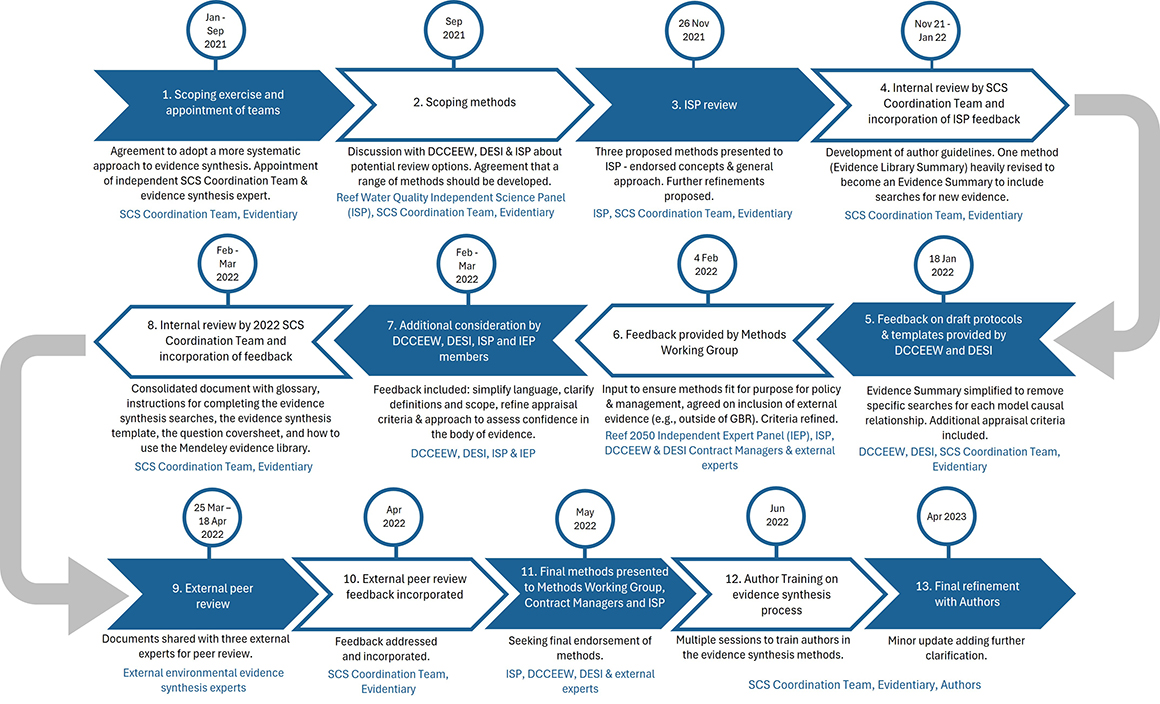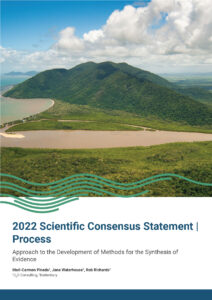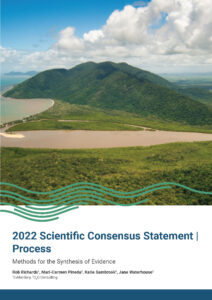An independent expert in evidence synthesis methods was appointed to lead the development of ‘fit for purpose’ methods for the 2022 Scientific Consensus Statement, supported by the Scientific Consensus Statement Coordination Team. Development of the methods focused on:
- Adopting best practice approaches using evidence that met a high scientific standard.
- Broadening accessibility.
- Increasing transparency and repeatability in the methods used to synthesise the evidence.
- Minimising the potential for bias in the review and appraisal of the evidence.
- Evaluating the relevance of the evidence to the Great Barrier Reef at spatial and temporal scales.
- Identifying an approach to assess and present a level of ‘confidence’ in the evidence.
A Methods Working Group was established and provided input as the Methods for the Synthesis of Evidence (hereafter referred to as ‘synthesis method’) were developed. In addition, the Australian and Queensland government Contract Managers were consulted throughout the process to ensure that the methods were fit for purpose and met the needs of the policy, management and other end users. This iterative process resulted in the development of three initial synthesis methods that were subsequently refined to two synthesis methods – an Evidence Review and an Evidence Summary. The two methods were largely consistent with each other but differed in the level of appraisal required, reflecting end user needs and priorities. The draft synthesis methods were formally peer reviewed by three independent evidence synthesis experts working in environmental policy/management including two experts from international organisations. The Methods Working Group endorsed the final methods following satisfactory completion of the peer review process. Authors were provided extensive training in the methods and offered ongoing support throughout the delivery process.

Note: DCCEEW is the Australian Government’s Department of Climate Change, Energy, the Environment and Water and DESI is the Queensland Government’s Department of Environment, Science and Innovation



